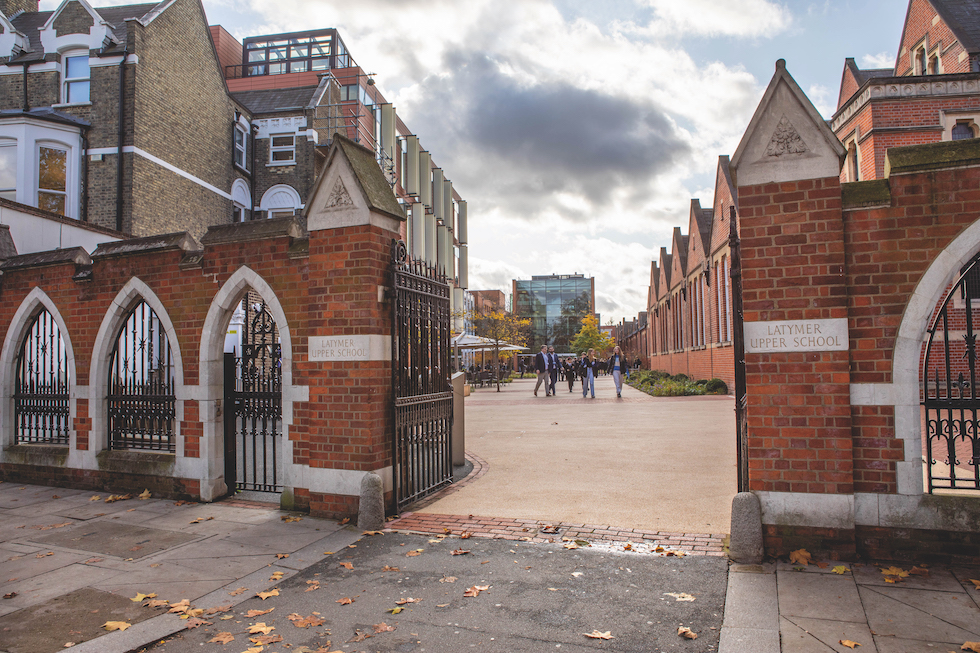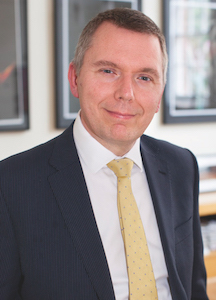
- HOME
- EDUCATION
Independent-State Mentoring
By | 3 years ago
Mentoring between independent and state schools benefits pupils from both, says David Goodhew, head of Latymer Upper School

At Latymer Upper School we are committed to creating genuine social impact through our bursaries and outreach programmes. I want Latymerians to be academic, rounded, and grounded – to care about each other and those in the local and global community who need their help. We want to equip and inspire our students to make a positive impact on society and the world around them.
Peer mentoring is a key element of the external programmes we run. When I read our sixth-formers’ reflections on what they have gained from their experiences, it is very clear that the benefits flow both ways. Initial feelings of hesitancy and being a bit out of their depth, developed into increased confidence and awareness; the most common phrases were ‘rewarding’ and ‘made me appreciate what I have’.
We see the long-term legacy of our peer mentoring projects in the high rates of volunteering and healthy attitudes towards community service after our students leave school. In a recent survey of our alumni, 13 per cent said that they are actively involved in philanthropic positions or charitable volunteering. They told us, ‘Something instilled in me from Latymer, I am still doing all the work I can to give back and aid those around me.’
From running our own internal scheme over many years we have seen that mentoring is a powerful way of strengthening the supportive ethos at Latymer, as well as encouraging a healthy respect for others. We have transposed learnings about how to run peer mentoring schemes successfully into our external projects with great success. For example, in 2015, when pupils at West London Free School were the first cohort there to be taking GCSEs, our lower-sixth students mentored their year 11s. We continued the programme, supporting the year nine and ten pupils with study skills and exam techniques as they came through year 11. ‘We are so grateful for the peer mentoring scheme,’ said Clare Wagner, their head. ‘Our pupils benefited enormously from the one-to-one support.’
Peer mentoring rewards all pupils with developed skills and resources, but also increased levels of mutual understanding and integration. It opens our students’ eyes to the diversity of their local community and the wider world, something that a parent eloquently expressed in a letter to me after their child took part in our collaboration with Care4Calais, saying, ‘Thank you for supporting this invaluable project and encouraging your pupils to look beyond their own lives. It’s so vital’. Similarly, the peer mentoring programme we run with West London College exposes our students to the experiences of teenage refugees and asylum seekers, many of whom have
never been to school. Melanie Clyne, who oversees the project, has been impressed with our students’ approach and credits their sensitivity, respectful and inclusive attitude as the key to the success of the programme.
Like so much this year, the global pandemic has frustrated how we deliver our external programmes. Over the past year we have been working with a coalition of local independent and state schools called The West London Partnership. As well as entrepreneurship programmes, we are currently exploring a new app developed by St Paul’s School that allows students who excel at maths to coach and support others in maintained schools who are struggling. Responding to coronavirus has required us all to become IT experts overnight, but perhaps one good thing to come from all of this is the realising of the potential of technological innovations to overcome obstacles of time, distance and space in the delivery of programmes like peer mentoring, enabling us to benefit more people, more often, for longer and well into the future.

David Goodhew is chair of The London Fee Assistance Consortium (LFAC), comprising 31 single-sex and co-educational independent member schools who offer free and subsidised places to able children whose families may not be able to afford the fees.
This article was originally published in the 2020/21 issue of Scholarships & Bursaries



